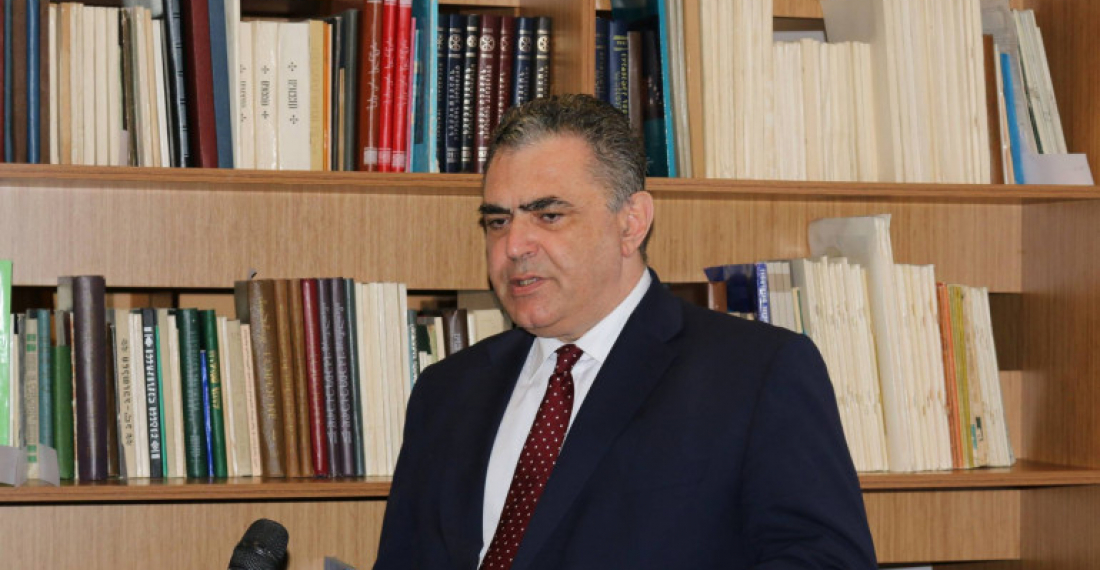ARMINFO's News Agency David Stepanyan interview Dennis Sammut, Executive Director of LINKS on recent issues surrounding the release of Ramil Safarov and the future of the karabakh peace process.
The extradition of Ramil Safarov has already resulted in the cancellation of a range of initiatives aimed at developing Armenian-Azerbaijani dialogue. Is it possible to continue efforts to establish a dialogue between the Armenian and Azerbaijani public as a precondition to resolving the Karabakh conflict, as the OSCE MG co-chairs have repeatedly mentioned it?
Dialogue and public diplomacy were the first victims of the events of the last two weeks. The same thing happened in 2004 when the murder took place in Budapest. It took a lot of work and effort to restore at least a minimum level of dialogue, but it was achieved. The same must happen now. Those calling for cutting of people to people contacts are simply playing into the hands of extremists.
Evidently, extradition and glorification of the murderer Safarov will affect not only the region and the Armenian-Azerbaijani relations, but also the policy of Yerevan and Baku with regard to international partners. What do you predict will be the consequences of the current situation?
There is undoubtedly concern in the international community about how the events surrounding the release of Safarov unfolded. I think what irritated European countries in particular was the lack of sensitivity. The perception that Azerbaijan did not act properly will linger for some time. In the end it will depend on future actions too. But there is no doubt that Azerbaijani diplomacy will have some hard work to do to restore the confidence of international partners.
Safarov's pardon has made Aliyev more popular inside Azerbaijan , even if such actions contradict international diplomacy and International Law. Can one conclude that the retention of power has become the priority for Aliyev, superseding even the international interests of Azerbaijan ?
Every government has to balance between domestic and foreign policy. The government of Azerbaijan is not an exception. Nor is the government of Armenia. However these issues, and the whole debate over Nagorno-Karabakh should not be instrumentalised for short term political gain. There will be Presidential elections in both Armenia and Azerbaijan next year. We should expect a lot of rhetoric, but we need to see statesmanship not cheap politics.
The years of negotiations within the Minsk Group have already shown that it is impossible to speak of Nagorno Karabakh's future without taking into consideration the realities of the last twenty years. That is, "return" of disputed territories to the former mini-metropolises is out of question regardless of the claims of territorial integrity of entities established in the Soviet Union. Do you think that the restoration of Azerbaijan's territorial integrity in this context has any perspective?
We tend to see these things in black and white terms. A solution over Nagorno Karabakh is never going to be either black or white, but some shade of grey. The future status of Nagorno-Karabakh is perhaps the most difficult aspect of the conflict and will be determined last. This status needs to be underpinned by two considerations: the security of all states and the safety of all citizens, particularly of minorities living amongst majorities. The return to Azerbaijan of territory around Nagorno-Karabakh currently under Armenian occupation is generally accepted to be a precondition.
What should the international community be doing at this stage?
The Safarov incident has shown once more that the Karabakh conflict is a difficult and serious problem with the potential to spiral quickly into a big problem. Big problems require big solutions. There is a very worrying trend in diplomatic circles to try to address the problem with small measures. This is not going to work. Confidence building measures, public diplomacy and people to people contacts are important, even vital for any peace process to succeed. However they can be most useful if they are developed in tandem with a proper peace process.
We need a big gesture from the international community on Karabakh - something that the sides can see is serious, and can engage with seriously, because if they don't they have something to loose.
source: This interview is reproduced in full from Arminfo News Agency







